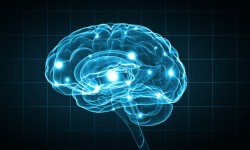The Mental Effects of Opioid Addiction and the Need for Treatment Help
For most people, it’s the physical effects of opioids that set the drug abuse cycle in motion; however, it’s the psychological effects of the drug that keep a person hooked. More than anything else, the mental effects of opioid addiction drive compulsive drug use, while at the same time thwarting any intention or desire a person may have to stop using the drug.
The mental aspect of opioid addiction becomes a struggle for the addict and the recovering addict alike since the aftereffects of addiction can last well into the recovery process. For these reasons, understanding how opioid addiction essentially commandeers the brain’s mental processes can help you in taking the necessary steps to get needed treatment help.
Effects of Opioid Addiction on Brain Structure

Opioid abuse over time changes the structure of the brain.
The mental effects of opioid addiction develop out of the changes that take place within the brain’s overall structure during the course of drug use. In effect, opioids force the brain to secrete unusually large amounts of neurotransmitter chemicals, most notably dopamine, serotonin and norepinephrine. This influx of chemicals on a repeated basis offsets the brain’s neurocircuitry, which gradually alters individual brain structures in the process.
In general, opioids produce depressant-like effects, slowing down major systems throughout the body. According to the National Institute on Drug Abuse, the effects of opioids on the body’s respiratory system reduce the amount of oxygen that reaches the brain. After so many months or years of opioid abuse, reduced oxygen supplies can have long-term effects on a person’s ability to control his or her impulses, behaviors and also impairs decision-making processes.
The Opioid Addiction Mechanism
Like all addictive substances, opioids target the brain’s reward system, an area that dictates what types of behaviors are essential to a person’s survival from day to day. According to the Canadian Medical Association Journal, the reward system assigns a high priority to any activity that triggers an influx of dopamine in the brain, such as eating a good meal or engaging in sexual activity.
Since opioids trigger dopamine secretions every time a person uses, these same interactions underlie the compulsive drug-using behaviors that characterize opioid addiction. By the time a person develops a full-blown addiction, getting and using drugs have become a top priority in his or her daily life.
https://www.disorders.org/opioid-use-disorder/how-opioid-use-affects-user-behavior/





